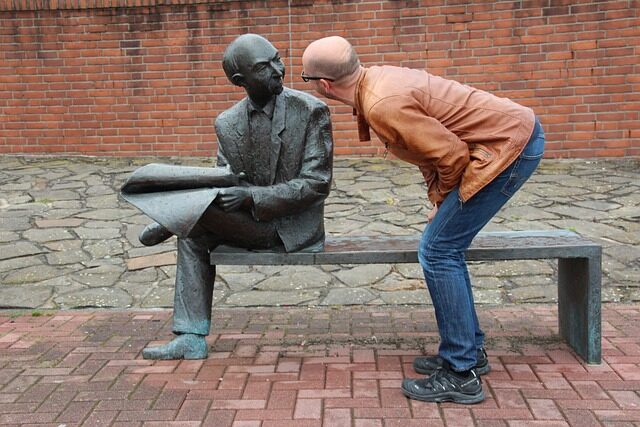Exploring the Essence: What is Ineffable?
hace 9 meses

The term ineffable carries a certain mystique, often reserved for moments that leave us speechless or experiences that transcend the confines of language. When something is so overwhelmingly powerful or emotionally profound that words seem inadequate, we reach for this descriptor to convey the depths of the indescribable.
From ancient roots to modern usage, the concept of the ineffable has fascinated philosophers, artists, and linguists alike. It's a notion that challenges the very essence of communication, prompting us to question the limitations and capabilities of our verbal expressions.
What Does the Word Ineffable Mean?
At its core, ineffable signifies that which cannot be expressed in words. It speaks to the limitations of language and the expansive nature of human feeling and thought. Whether it's the awe-inspiring grandeur of a natural wonder or the complex emotions stirred by a work of art, the ineffable escapes verbal encapsulation.
The use of 'ineffable' often surfaces in contexts where traditional descriptors fall short. People might describe spiritual encounters, profound love, or transformative experiences as ineffable, highlighting their extraordinary impact.
It's not just about magnitude; the ineffable also pertains to subtlety and nuance. The delicate complexity of certain emotions or the intricate beauty of specific phenomena can evoke a sense of the ineffable.
Origin and Etymology of Ineffable
The word 'ineffable' finds its roots in Latin ineffabilis, a term that combines the prefix 'in-', meaning 'not', with 'effabilis', meaning 'speakable'. This etymological heritage underscores the concept of unspeakability that has endured through centuries.

Its passage into the English language has preserved this original sense, with 'ineffable' retaining its association with the unutterable and transcendent.
In literature and historical texts, the word has been used to describe divine entities or phenomena, suggesting that certain aspects of spirituality are beyond the capacity of human language to capture.
How the Word Ineffable Is Used in Phrases
Turning to the practical applications of 'ineffable', we find that it graces many a phrase where language meets its boundaries. One may speak of an 'ineffable joy' that surpasses simple happiness or an 'ineffable sadness' that goes deeper than mere sorrow.
The phrase "ineffable mystery" often appears in works that grapple with existential questions, pointing to enigmas that defy explanation.
In personal narratives, the expression "ineffable connection" may be used to describe a bond that feels predestined or otherworldly, defying conventional understanding.
Examples of Ineffable Experiences
What, then, qualifies as an ineffable experience? Often, these are moments that are felt more profoundly than they can be articulated:

- The overwhelming mix of emotions a parent feels at the birth of their child.
- The ineffable beauty of a sunset that paints the sky in hues beyond the reach of any palette.
- The wordless understanding between lifelong friends, where a glance conveys volumes.
- The inner transformations during moments of deep meditation or prayer.
- The surge of inspiration that artists often describe when they're in the throes of creation.
Each of these scenarios underscores a depth of experience that eludes description, inviting those who hear of them to imagine the breadth of the unspoken.
Ineffable in Art and Poetry
Art and poetry stand as testaments to humanity's quest to capture the ineffable. They serve as vessels for expressing the inexpressible, using visuals, metaphors, and symbolic language to hint at the layers beneath the surface.
In poetry, the ineffable often becomes a central theme, acknowledged through eloquent attempts to skirt around the indescribable. Great poets wield words to evoke a sense of what lies beyond words themselves.
Artists, too, strive to evoke the ineffable through their works, be it through abstract expressions, evocative sculptures, or immersive installations. They invite viewers to interact with the ineffable, to feel rather than articulate.
Phrases Celebrities About the Ineffable
Over time, many notable figures have commented on the nature of the ineffable. Here are a few striking examples:
- "Words are but the signs of ideas." – Samuel Johnson, acknowledging the gap between language and thought.
- "Music expresses that which cannot be said and on which it is impossible to be silent." – Victor Hugo, reflecting on music's power to convey the ineffable.
- "The limits of my language mean the limits of my world." – Ludwig Wittgenstein, on how language confines our understanding.
These phrases reflect a collective recognition that some elements of existence are ineffably bound to our personal and subjective realms.

What Does Being an Ineffable Person Mean?
To be described as an ineffable person is to be seen as possessing qualities that are difficult to put into words. This could be due to a unique charisma, an enigmatic presence, or a depth of character that eludes simple description.
Such individuals might inspire awe or admiration in ways that leave others at a loss for the right adjectives. They embody an essence that transcends the usual categorizations.
What Is Ineffable Synonymous With?
In searching for synonyms of 'ineffable', one might encounter words like 'indescribable', 'unspeakable', 'unutterable', or 'inexpressible'. Each carries a similar connotation of something so extraordinary that it defies conventional description.
Yet, each synonym also carries its own nuances, reflecting the rich tapestry of language's attempts to name the unnameable.
How Is the Word Ineffable Used?
The usage of 'ineffable' varies from literary and scholarly contexts to everyday conversation. Writers might employ it to convey the sublime quality of their subject, while ordinary speech might see it used to express strong emotions.
In both cases, the speaker reaches for 'ineffable' to acknowledge a reality that sprawls beyond the confines of language.

What Does "My Love for You Is Ineffable" Mean?
When someone says "My love for you is ineffable," they're declaring a love so profound and complex that it cannot be fully captured in words. It's an admission that the depth of their affection goes beyond verbal expression, residing in a place of pure emotion and connection.
This phrase is a powerful testament to an extraordinary bond, one that is felt deeply and intimately.
Including this video provides a visual and auditory exploration of the concept of the ineffable, enhancing our understanding of this profound term.

Deja una respuesta